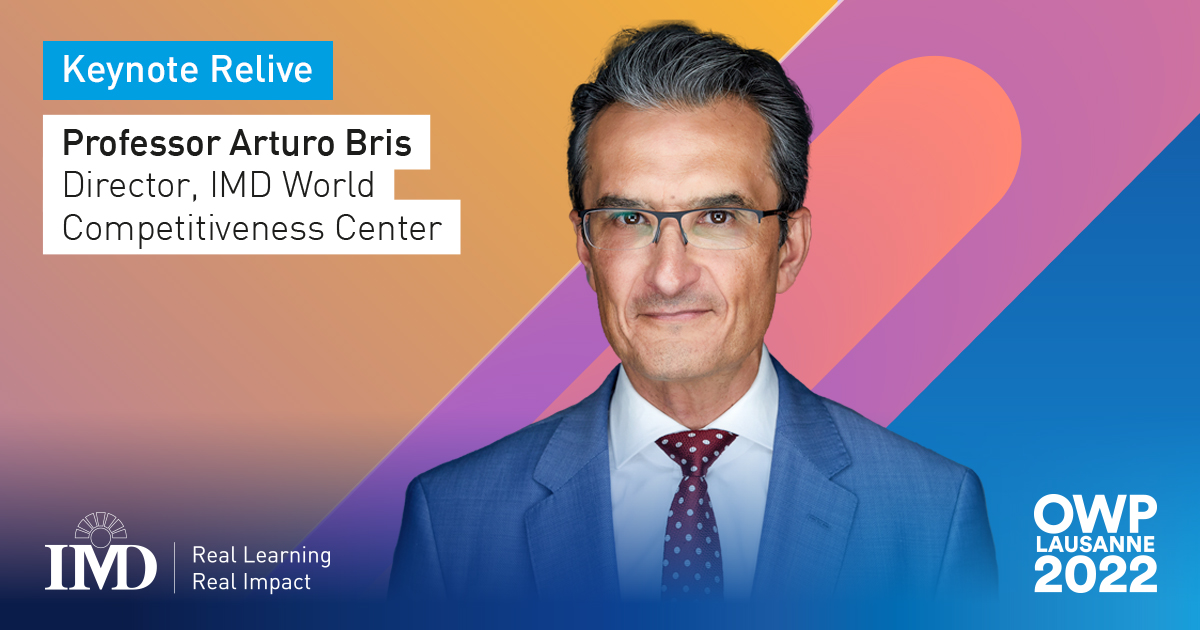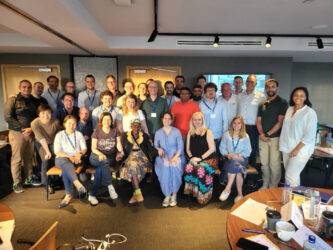
OWP 2022 got underway with a thought-provoking keynote by IMD Professor of Finance and Director of the IMD World Competitiveness Center Arturo Bris, who stressed the complex challenges in predicting the economic outlook for 2022 given the highly uncertain times in which we live.
“The pandemic and the Ukraine war are neither black swans nor gray rhinos,” he told OWP participants. “The pandemic was a ‘heffalump’ and the Ukraine war, a ‘woozle’. That is to say: no one could have predicted them.”
In A.A. Milne’s Winnie the Pooh, the bear encounters the make-believe creatures in a dream. They love honey and will go so far as to steal it, and yet some of them turn out to be friendly.
With this vivid analogy, Bris asked participants: If the role of executives is to predict the future, where does such uncertainty lead us?
The best course of action, he suggested, was to create a crisis management culture; systems that will help when the unthinkable comes.
Strategy, according to this way of thinking, becomes less important and agility becomes key: “Obviously, we need to make decisions for the next five years, but they should be reversible, resilient, and build in the knowledge that a woozle or a heffalump could appear at any moment.”
Why are we so bad at predicting the future?
Bris listed three main reasons why humans fail to predict effectively:
- We extrapolate too much from the past. Once typhoons, wild fires and hurricanes happen, we assume they are going to come again.
- We do not read the signals quickly enough. Europe and the US took weeks to adopt the use of masks when COVID-19 struck, despite some Asian countries setting an early example.
- We do not look back enough to learn from our mistakes. Executives have failed consistently to predict the big drivers of change in the world economy, from political crises to economic shocks. Despite this, we continue pretending that we can formulate scenarios for the future.
Assessing the status quo
With predictions being almost futile, taking a look at the current macroeconomic state of play should be the focus and, today, these point to declining growth in both the US and Europe.
Sources of this reading include a decrease in exports and an increase in imports, as well as a decrease in both inventory investment and federal/government spending, and an increase in consumer spending.
“The velocity of money has stopped; that is to say, money has stopped moving,” said Bris, citing figures from December 2021 showing that the frequency at which currency is used to buy goods and services over a period of time – is essentially at a 1 in the US today. A low velocity of money indicates that people are reluctant to spend, even if they have disposable income.
Based on this, we might decide to taper money supply and to remove the fiscal stimulus for consumption, said Bris, adding: “However, the war in Ukraine and subsequent inflationary pressures have created a situation in which there is no more room for monetary stimulus.”
With hindsight there was “too much fat (cash) in the system. We make countries very fat and slow moving. But if you inject more fat, you aren’t going to move any quicker.”
Shifting from an “anything’s possible” to an “anything’s likely” attitude
Bris concluded that leaders and organizations need new skills for a new world, to focus on facts and, without living in a constant state of panic, to upscale crisis management to such a magnitude to be able to deal with the invasion of the apes.
“In all seriousness, we should think that everything is likely now,” he said. “We used to think a solar storm – the world running out of energy for weeks or months – was unthinkable. But now it really isn’t. It wouldn’t surprise me at all, and we must be prepared.”



